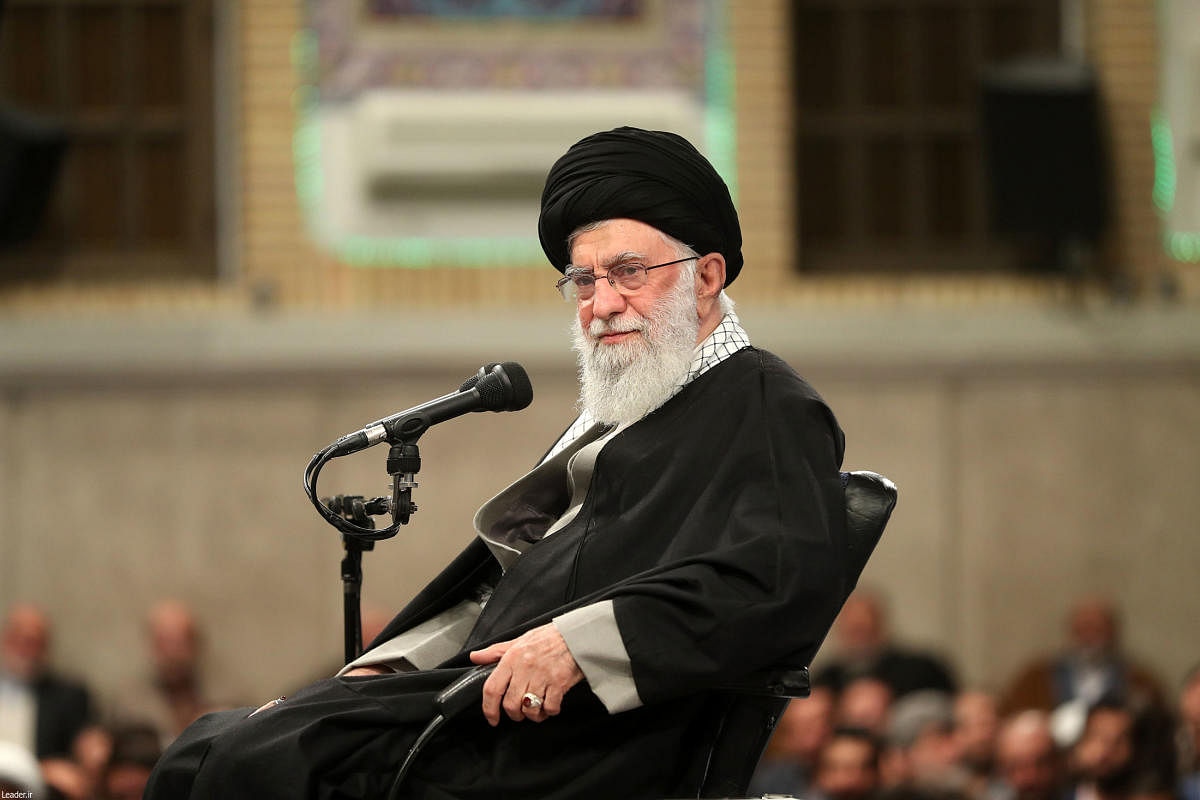
Iran on Thursday sharpened its criticism of India, with the supreme leader of the Persian Gulf nation, Ayatollah Khamenei, saying that the Narendra Modi government “should confront extremist Hindus” and “stop the massacre of Muslims”.
“The hearts of Muslims all over the world are grieving over the massacre of Muslims in India,” Khamenei posted on Twitter, just two days after India strongly protested Iranian Foreign Minister Javad Zarif's “selective and tendentious” statement on the recent violent clashes in northeast Delhi.
The Iran leader also warned India of the possibility of being isolated from the “World of Islam” if violence against Muslims did not stop. He even posted a picture of a boy crying near the mortal remains of his father, who was among those killed in the recent clashes in the National Capital Territory of India. “The Government of India should confront extremist Hindus & their parties & stop the massacre of Muslims in order to prevent India’s isolation from the world of Islam.”
Ali Larijani, Speaker in Iranian Parliament (Majlis), on Thursday said the violence Muslims were suffering in India was “incompatible with the spirit of the civilisation of India. He urged the government “to use all its capacity to put an end to the plight of Muslims and sectarian violence in the country”.
The violent clashes over the Citizenship (Amendment) Act in northeast Delhi since February 23 has resulted in the death of at least 50 people. Countless others were injured and properties damaged.
Tehran had on Monday launched its diatribe against the Modi government with a tweet by Iranian Foreign Minister Javad Zarif, who termed the clashes as a “wave of organised violence against Indian Muslims”. He also stated that the Iranian government condemned the violence against Muslims in India.
“For centuries, Iran has been a friend of India,” the minister tweeted, adding, “We urge Indian authorities to ensure the well-being of ALL Indians & not let senseless thuggery prevail. Path forward lies in peaceful dialogue and rule of law.”
New Delhi dismissed Iranian foreign minister's “unwarranted statements”, particularly his “selective and tendentious characterisation” of recent events in Delhi.
Ali Chegeni, ambassador of Iran to India, was summoned to the Ministry of External Affairs (MEA) in New Delhi on Tuesday. Senior officials conveyed to him that the violence in parts of Delhi last week was an “internal matter” of India and that it “did not expect such comments from a country like Iran”.
Though the government had already drawn flak from certain sections of the international community over the violent clashes in Delhi, the critical remarks from Tehran came as a rare shock to New Delhi.
Iran generally avoids taking a critical stand on any internal matter of India.
After the Modi government on August 5, 2019, moved to strip Jammu and Kashmir of its special status and reorganised the state into two Union Territories, Tehran kept its reaction limited to rather mildly expressing concerns over the “condition of people” in the valley and urging New Delhi to adopt “a fair policy” towards the people of the region. Tehran also avoided taking Islamabad's side whenever tension between India and Pakistan escalated.
The statements on the violent clashes in Delhi from Iran's supreme leader and others came as a surprise for India. He had visited New Delhi in January. He had a meeting with External Affairs Minister S Jaishankar just less than a fortnight after the United States had killed Iran's top military commander Lieutenant General Qassem Soleimani in a drone attack near the international airport in the capital of Iraq.
India had hosted him, brushing aside murmurs of disapproval from the United States. Jaishankar too had met Zarif in Tehran soon after he and Defence Minister Rajnath Singh had held the 2+2 dialogue with their US counterparts in Washington D.C. in December 2019. Though New Delhi stopped buying crude oil from Iran to save its entities from United States sanctions, it continued its engagement with Tehran for its role in Chabahar Port in the West Asian Nation as the port would provide India a sea-land access to Afghanistan and Central Asia, bypassing Pakistan.
